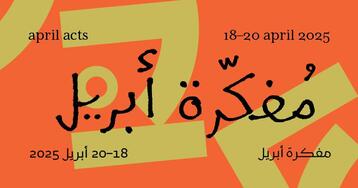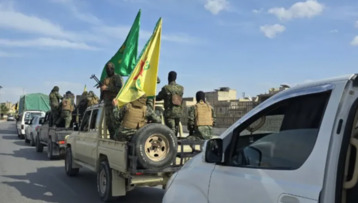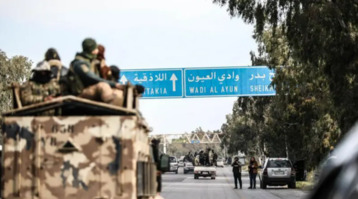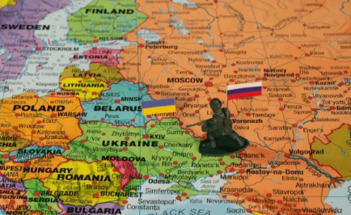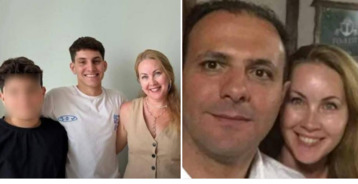-
Vatican's Bioethics Academy Demands Ending The “Myths And Disinformation” Related To COVID-19
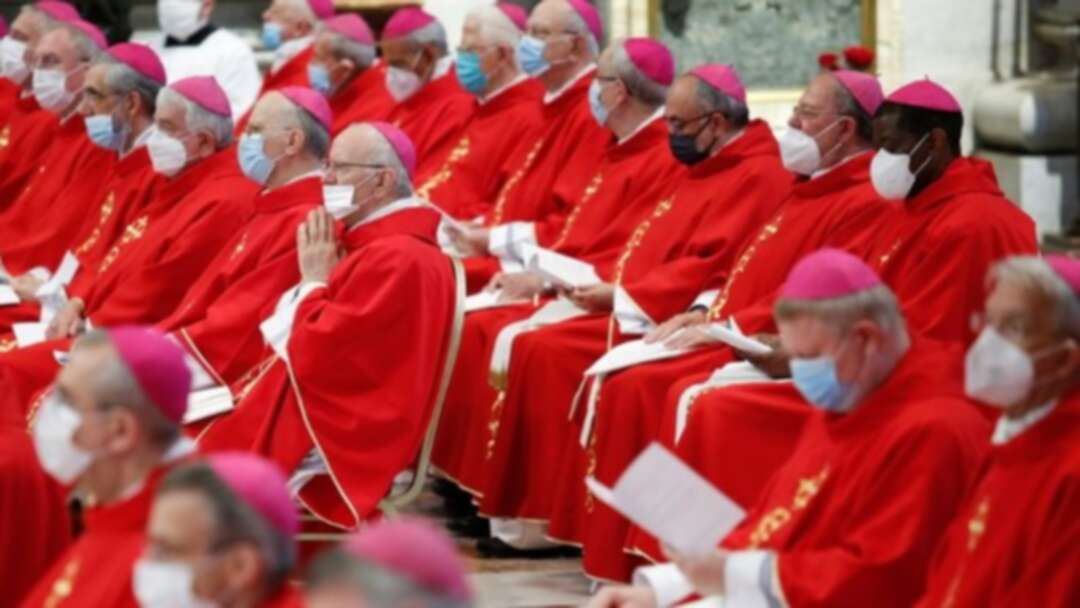
RT reported that the official bioethics academy of the Catholic Church has come forward alongside a host of global medical associations to demand an end to the “myths and disinformation” interfering with the fight against Covid-19. Academy
The Pontifical Council of Life (VPCL) and several international physicians’ groups spoke with reporters on Friday in what was described as an “all-out effort” to set straight the disinformation surrounding the vaccine’s place in religious doctrine, insisting the pharmaceutical mixture was not only safe and effective but also ethical under the Catholic faith.
While acknowledging that some reluctance to take the jab in “disadvantaged communities” was linked to previous “breaches of trust in medical research” and overall “suspicion” of pharma firms, Friday’s joint statement said a “more pernicious form” of vaccine hesitancy was fueled by “unfounded and misleading claims and myths” and amplified on social media. Academy
They said, "Considered one of the greatest achievements of modern medicine, vaccines play a vital role in the prevention of infectious diseases."
The groups noted the problem becomes even more complex given the vaccine skepticism within many religious groups, and even the medical community, calling for a united front against disinformation among spiritual leaders and healthcare professionals.
The statement followed a day-long online seminar sponsored by the VPCL, along with the World Medical Association of France and the German Medical Association.
The groups also reiterated the Vatican’s message that all nations should have the same access to vaccines, arguing that rich and poor countries should be able to obtain the same level of care. Pointing to what they called “vaccine nationalism,” they condemned wealthier countries for snapping up as many doses as possible while leaving poorer countries “at a disadvantage” due to a lack of funds or insufficient production capacity.
However, some attending the virtual event complained that groups concerned with vaccine safety, including conservative and Catholic organizations, were not invited, noting that there were no skeptics among the speakers. The organizers shut down any such concerns, however, “strongly rejecting” any doubt in the vaccines’ safety, the Associated Press reported.
The head of international affairs for the German Medical Association, Dr. Ramin Parsa-Parsi, spoke disparagingly of skeptics, implying their concerns are at odds with the science. Academy
“We are physicians. We represent physicians. And we are bound to science and to evidence-based medicine,” he said.
Those who oppose vaccination on religious grounds have cited the use of cells from fetuses aborted decades ago in the development of immunizations, including in those aimed to combat Covid-19. In February, the Archdiocese of New Orleans denounced the Johnson & Johnson jab as “morally compromised” due to its use of fetal cells.
The US Conference of Catholic Bishops, meanwhile, gave a pass to shots produced by Pfizer and Moderna, deeming their link to abortion too tangential, but urged Catholics to avoid the AstraZeneca and Johnson & Johnson jabs if possible.
The Congregation for the Doctrine of the Faith – the oldest among the nine congregations of the Roman Curia – declared in December that, so long as no other option is available, it is morally acceptable to receive vaccines based on cells taken from aborted fetuses.
And while the Pontifical Academy for Life has argued there is a “moral responsibility” to vaccinate, it did not go so far as to mandate the jab for all Catholics. That was left to Pope Francis, who denounced any apprehension about vaccines as “suicidal denial.” Academy
Source: RT
Image source: Reuters-RT
You May Also Like
Popular Posts
Caricature
BENEFIT AGM approves 10%...
- March 27, 2025
BENEFIT, the Kingdom’s innovator and leading company in Fintech and electronic financial transactions service, held its Annual General Meeting (AGM) at the company’s headquarters in the Seef District.
During the meeting, shareholders approved all items listed on the agenda, including the ratification of the minutes of the previous AGM held on 26 March 2024. The session reviewed and approved the Board’s Annual Report on the company’s activities and financial performance for the fiscal year ended 31 December 2024, and the shareholders expressed their satisfaction with the company’s operational and financial results during the reporting period.
The meeting also reviewed the Independent External Auditor’s Report on the company’s consolidated financial statements for the year ended 31 December 2024. Subsequently, the shareholders approved the audited financial statements for the fiscal year. Based on the Board’s recommendation, the shareholders approved the distribution of a cash dividend equivalent to 10% of the paid-up share capital.
Furthermore, the shareholders endorsed the allocation of a total amount of BD 172,500 as remuneration to the members of the Board for the year ended 31 December 2024, subject to prior clearance by related authorities.
The extension of the current composition of the Board was approved, which includes ten members and one CBB observer, for a further six-month term, expiring in September 2025, pending no objection from the CBB.
The meeting reviewed and approved the Corporate Governance Report for 2024, which affirmed the company’s full compliance with the corporate governance directives issued by the CBB and other applicable regulatory frameworks. The AGM absolved the Board Members of liability for any of their actions during the year ending on 31st December 2024, in accordance with the Commercial Companies Law.
In alignment with regulatory requirements, the session approved the reappointment of Ernst & Young (EY) as the company’s External Auditors for the fiscal year 2025, covering both the parent company and its subsidiaries—Sinnad and Bahrain FinTech Bay. The Board was authorised to determine the external auditors’ professional fees, subject to approval from the CBB, and the meeting concluded with a discussion of any additional issues as per Article (207) of the Commercial Companies Law.
Speaking on the company’s performance, Mr. Mohamed Al Bastaki, Chairman BENEFIT , stated: “In terms of the financial results for 2024, I am pleased to say that the year gone by has also been proved to be a success in delivering tangible results. Growth rate for 2024 was 19 per cent. Revenue for the year was BD 17 M (US$ 45.3 Million) and net profit was 2 Million ($ 5.3 Million).
Mr. Al Bastaki also announced that the Board had formally adopted a new three-year strategic roadmap to commence in 2025. The strategy encompasses a phased international expansion, optimisation of internal operations, enhanced revenue diversification, long-term sustainability initiatives, and the advancement of innovation and digital transformation initiatives across all service lines.
“I extend my sincere appreciation to the CBB for its continued support of BENEFIT and its pivotal role in fostering a stable and progressive regulatory environment for the Kingdom’s banking and financial sector—an environment that has significantly reinforced Bahrain’s standing as a leading financial hub in the region,” said Mr. Al Bastaki. “I would also like to thank our partner banks and valued customers for their trust, and our shareholders for their ongoing encouragement. The achievements of 2024 set a strong precedent, and I am confident they will serve as a foundation for yet another successful and impactful year ahead.”
Chief Executive of BENEFIT; Mr. Abdulwahed AlJanahi commented, “The year 2024 represented another pivotal chapter in BENEFIT ’s evolution. We achieved substantial progress in advancing our digital strategy across multiple sectors, while reinforcing our long-term commitment to the development of Bahrain’s financial services and payments landscape. Throughout the year, we remained firmly aligned with our objective of delivering measurable value to our shareholders, strategic partners, and customers. At the same time, we continued to play an active role in enabling Bahrain’s digital economy by introducing innovative solutions and service enhancements that directly address market needs and future opportunities.”
Mr. AlJanahi affirmed that BENEFIT has successfully developed a robust and well-integrated payment network that connects individuals and businesses across Bahrain, accelerating the adoption of emerging technologies in the banking and financial services sector and reinforcing Bahrain’s position as a growing fintech hub, and added, “Our achievements of the past year reflect a long-term vision to establish a resilient electronic payment infrastructure that supports the Kingdom’s digital economy. Key developments in 2024 included the implementation of central authentication for open banking via BENEFIT Pay”
Mr. AlJanahi concluded by thanking the Board for its strategic direction, the company’s staff for their continued dedication, and the Central Bank of Bahrain, member banks, and shareholders for their valuable partnership and confidence in the company’s long-term vision.
opinion
Report
ads
Newsletter
Subscribe to our mailing list to get the new updates!


